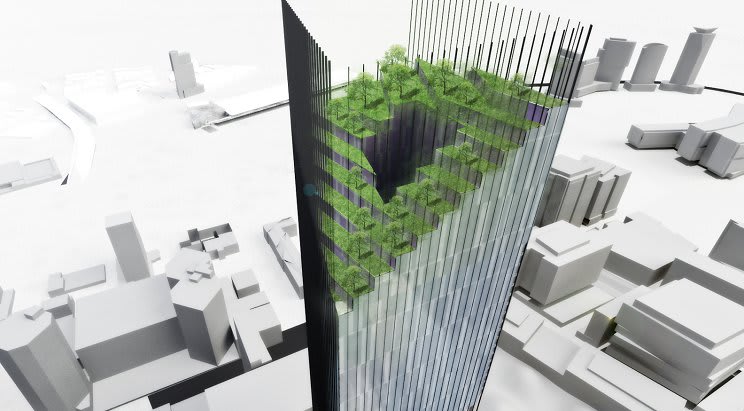The future of vertical farms in Melbourne
Earlier this year I travelled to the United States for work purposes, a great experience even though I swapped my shorts for snow and icy footpaths. Through my travels I managed to visit the Museum of Science and Industry (www.msichicago.org) in Chicago. In and amongst some impressive displays I stumbled across the Fast Forward - Inventing the Future exhibition which displayed some of the "usual suspects" when it came to western humanity's view of the future like bendy phones and robots that can make you breakfast.
The one display that particularly resonated with me described the benefits of using vertical farming through inner city areas to help tackle the world's food production problems. Dr. Dickson Despommier has been a vocal advocate of this method of farming and given his background as an ecologist, microbiologist and Professor of Public Health and Environmental Health Sciences at Columbia University - I'd say his opinion carries substantial oomph.
The issues involved are complex and significant. Through Despommier's website www.verticalfarm.com, it's estimated that by 2050 nearly 80% of the world's population will be living in urban areas.
Consequently to feed the additional 3 billion people, current practices would require an additional agricultural land equivelant to 20% the size of Brazil. Assuming current trends continue there may well be a shortfall in required resources yet through the use of vertical farming a partial, yet highly sustainable solution is in the offing.
Advantages with vertical farming include:
- Year round crop production; 1 indoor acre is equivalent to 4-6 outdoor acres, depending on the crop. For example, 1 indoor acre of strawberries is equivalent to 30 outdoor acres;
- Crop issues relating to weather and pests become redundant;
- All food grown in vertical farms are organic;
- Vertical farming eliminates agricultural runoff by recycling black water;
- Vertical farming eliminates the use of agricultural land for growing crops;
- Greatly reduced incidence of many infectious diseases associated with the agricultural interface;
- Vertical farming converts black and grey water into potable water by collectiong the water of evapotranspiration;
- Vertical farming adds energy back to the grid via methane generation from composting non-edible parts of plants and animals;
- Dramatic reduction in fossil fuel use (no tractors, plows, shipping);
- Conversion of abandoned urban properties into food production centres;
- Creation of sustainable environments for urban centres;
- Creation of new economic and employment opportunities;
So how could this be applied to Melbourne? Resident renderer Laurence Dragomir of Blockhead has used the former Savoy Tavern site on the corner of Bourke and Spencer Streets as our test site to demonstate how a mixed-use vertical farm and residential tower in Melbourne may look like (if we had lots of money and could defy gravity...).
The concept shown below proposes a tower comprising a 15 storey high public market hall at the corner of Bourke and Spencer Streets, north facing terraced community gardens and a communal urban farm. An atrium runs the height of the building.
While whimsical in its nature, the scheme demonstrates the sustainable direction that buildings should pursue. There is no doubt that in the future governments must consider the use of vertical farming and other efficient practices as a legitimate way of sustaining the planet's growing population.
If greater Melbourne continues to gobble up potential farming land for detached houses and increased urban sprawl, then we will reach a point where the financial and environmental cost of sustaining our population could spiral.
On a smaller scale, a number of restaurants around Melbourne are growing a lot of their own plant based produce in house which is great, but we need to think about facilitating this in a far larger scale.
We pride ourselves as a great food city, let's pride ourselves on being a great sustainable food city. Utilising vertical farm technology would go a long way in achieving that goal.
Sources and Further reading
http://www.verticalfarm.com/
http://www.economist.com/node/17647627
http://www.msichicago.org/whats-here/exhibits/fastforward/
